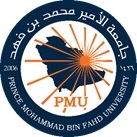


Keynote Speakers
Keynote 1:
Prof Seilov Shakhmara, L.N. Gumilyov Eurasian National University, Kazakhstan
Biography:
President of the Kazakh Academy of Infocommunications, Dean of the Information Technologies Faculty of the L.N. Gumilyov Eurasian National University, candidate of technical sciences (1990) and doctor of economic sciences (2006), professor, academician of the International Academy of Communications (2004).
Seilov Sh. has graduated in 1983 from the Leningrad (St. Petersburg) Electrotechnical Institute of Communications with a degree in automatic telecommunications. Since 1996, he worked in executive positions in Kazakh telecom JSC, Kazteleradio JSC.
In 2007, he founded the Kazakh Academy of Infocommunications, a non-governmental scientific consulting fund, deals with market analysis and improvement of state regulation of the telecommunications sector, development of regulatory legal acts and technical regulations in the field of ICT. For the development of the Institute of Innovation, a project has been developed for the selection and commercialization of start-up projects using crowdfunding and cryptocurrency.
Under his leadership, the “Model of universal service and provision of broadband access to the Internet in rural settlements of the republic”, “Opportunities and potential for transit of telecommunication traffic Eastern Europe - Southeast Asia of the Republic of Kazakhstan” for the Ministry of Health of the Republic of Kazakhstan “Development and use of telemedicine systems for rural settlements of Kazakhstan ", the Ministry of Labor and Social Protection " Intelligent information system for searching for vacancies and personnel using elements of artificial intelligence ", the Ministry of Industry and Trade " Identification of critical technologies for the industrial and innovative development of the economy of Kazakhstan in the framework of foresight research. "
Seilov Sh. has experience in international projects, he was the national coordinator of the Center of Excellence of the International Telecommunication Union, an expert of the European Bank for Development and Reconstruction in the project "Liberalization of the telecommunications market of the CIS countries", proposed to strengthen the integration of countries and competition to zero roaming rates and symmetric interconnect between telecom operators during traffic exchange. Development of Seilov Sh.Zh., the “Methodology for determining economically fair payments for the use of radio frequency resources by telecom operators” was adopted by the ITU Radiocommunication Bureau as a national contribution and the norm of an article in the Law of the Republic of Kazakhstan “On Communications” and the Tax Code of the Republic of Kazakhstan. For a qualitative increase in human capital and international certification of Kazakhstan's ICT specialists, a network of Cisco network academies has been created in the Republic of Kazakhstan, currently this project is supported by Cisco and proposed to the countries of Central Asia..
Keynote 2:
Prof. Eduard Babulac
Department of Computer Science, Mah University, USA.
This talk covers the concepts underlying networked games (NGs) and networked virtual environments (NVEs), from their definition, to distributed systems, to networking fundamentals, quality of experience and game design needs.
Topics include (depending on time allotted):
- intro to networked games technology
- the challenges of networked games
- QoS/QoE
- traffic analysis and measurements
- transport protocols and performance
Invited Speakers
Prof. Musti KS, Namibia University of Science and Technology, Windhoek
Prof. Ricardo Armentano, Favaloro University, Buenos Aires, Argentina

